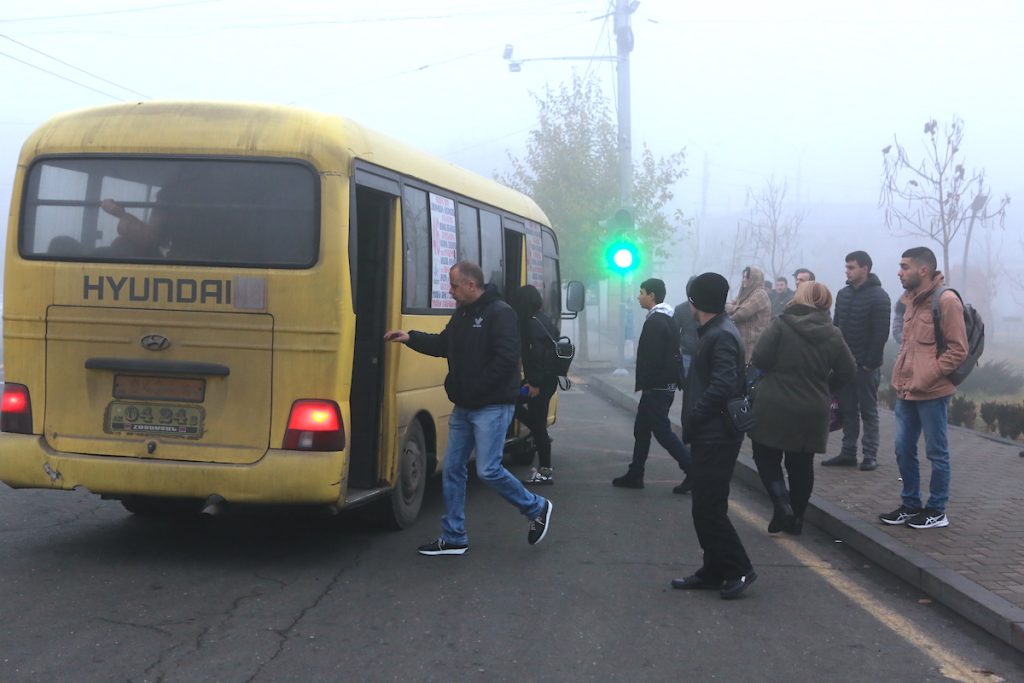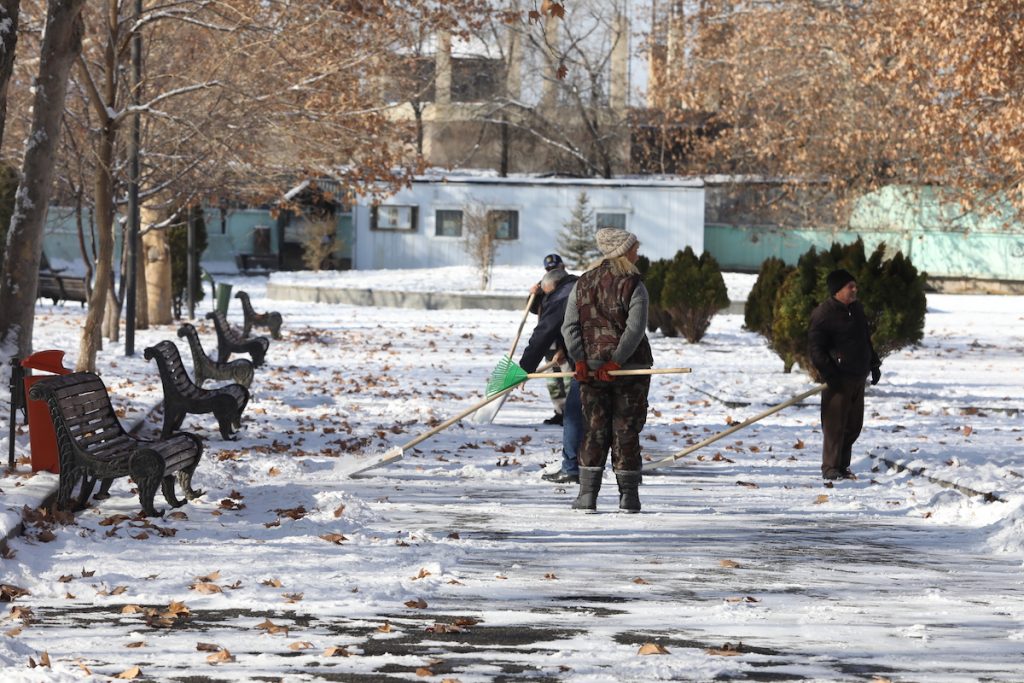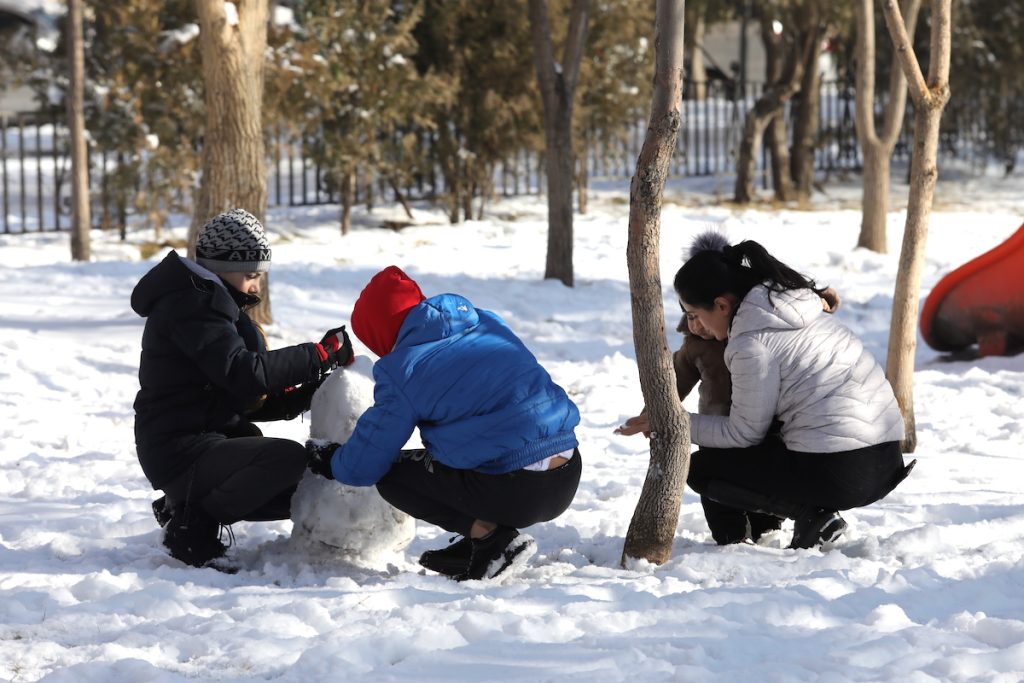What do residents of Yerevan think about Armenian-Turkish negotiations?
Yerevanians discuss Armenian-Turkish negotiations
In January 2022, the process of normalizing relations between Armenia and Turkey began, and the first consultations were held in Moscow.
However, many in Armenian society find it hard to accept this process, and even the very fact of negotiations causes concern.
One of the main critical arguments is that if the borders are opened and diplomatic relations are resumed, Turkey will “flood” the Armenian market with its goods and force out local producers.
The degree of distrust towards Turkish policy is also high.
This survey, being a journalistic work, does not claim to be sociologically accurate. We only present some of the opinions and arguments of the residents of the capital of Armenia.
- Closed railway of my childhood and the Armenian-Azerbaijani conflict
- Not quite how they imagined it – Azerbaijani IDPs’ return to Karabakh

Historian Helen Nazarian:
“The current Armenian-Turkish negotiations cannot yield a pro-Armenian result, because the starting points of parties have been very unequal.
All the leaders of independent Armenia spoke in one way or another about the Armenian-Turkish dialogue, negotiations, or opening of borders. But I think the conditions were most favorable in the 1990s, right after the collapse of the Soviet Union and gaining of independence.
Back then, Turkey itself was interested in the normalization of relations.
Today, after the 44-day war [September 27-November 10, 2020], I doubt that Armenia will be able to defend its positions. In fact, today it is not about negotiations, but about what one side will say and what the other will agree with”.
Helen Nazaryan believes that during the negotiations the issue of the Armenian genocide in the Ottoman Empire in 1915 will not be discussed, since this is not in the interests of either side:
“Today, Armenia is not in a position to insist on the recognition of the genocide, and Turkey simply does not want this problem to be in the center of attention of the international community again, because it knows that it is unlikely to secure a pro-Turkish solution. I think this topic will simply be avoided at these negotiations”.
At the same time, Helen Nazaryan believes that no matter what the negotiations are, as a result, Armenia will have more losses, whether in the form of territories, economic independence, or even sovereignty.
Teacher Saribek Mirzoyan:
“Short-term economic benefits that Armenia may receive as a result of the normalization of Armenian-Turkish relations may, over time, become the subject of blackmail aimed at forcing Armenia to make concessions.
Free market relations with Turkey, the opening of communications, of course, can have a positive impact on the economic situation in Armenia, but they will be short-term.
And long-term planning can become a tool in the hands of Turkey to achieve its pan-Turkic goals.
I think Turkey will use the factor of Armenia’s economic dependence to impose territorial and moral concessions on it, such as direct access to Nakhichevan [an enclave of Azerbaijan surrounded by Armenian territory] or abandoning the demand to recognize the Armenian Genocide in Ottoman Turkey”.
Saribek Mirzoyan believes that a possible normalization of relations with Turkey cannot ensure the security of Armenia:
“Speaking of security guarantees, we must remember Turkey’s open participation in the 44-day war, as well as Ankara’s pan-Turkic policy.
Security conversations can be between equal partners. But Turkey may turn out to be the winner, which at any moment can change its position in relations with a weaker neighbor.
Today, there is a great risk of falling into economic dependence on Turkey, especially given the growing economic influence of this country in the region and the unstable geopolitical situation. And this can be devastating for Armenia”.

Businesswoman Stella Bagaryan
Stella Bagaryan has two small clothing stores in one of the Yerevan shopping centers. Her business was founded 12 years ago.
Stella admits that the last two years have been the most difficult, with little to no trade and double-digit inflation.
“Everything has risen in price, and the rent for the premises has almost doubled. We mainly imported goods from China. We have always been distinguished by the fact that we imported very high-quality clothes, which cost more. Over the years of work, we have been able to create a stable client base”.
After the borders were closed due to the coronavirus, Stella Bagaryan’s business was in a state of collapse. Then she began to place orders online, but there were problems with it too․
Stella believes that the launch of a direct Yerevan-Istanbul flight, as well as the establishment of economic relations with Turkey, can alleviate the current situation of Armenian traders:
“There are many Turkish products in Armenia because they are more affordable than many others, including local ones. We have never brought clothes from Turkey, but in the current conditions, it can become an alternative for us. Otherwise, I don’t know how much longer we can survive.
Business in Armenia is in a very unstable state. Of course, you can close a store for 2-3 months, not pay rent, somehow endure it, but during this time some other store will open instead of yours and you will simply find yourself out of the market.

Trajectories is a media project that tells stories of people whose lives have been impacted by conflicts in the South Caucasus. We work with authors and editors from across the South Caucasus and do not support any one side in any conflict. The publications on this page are solely the responsibility of the authors. In the majority of cases, toponyms are those used in the author’s society. The project is implemented by GoGroup Media and International Alert and is funded by the European Union




















